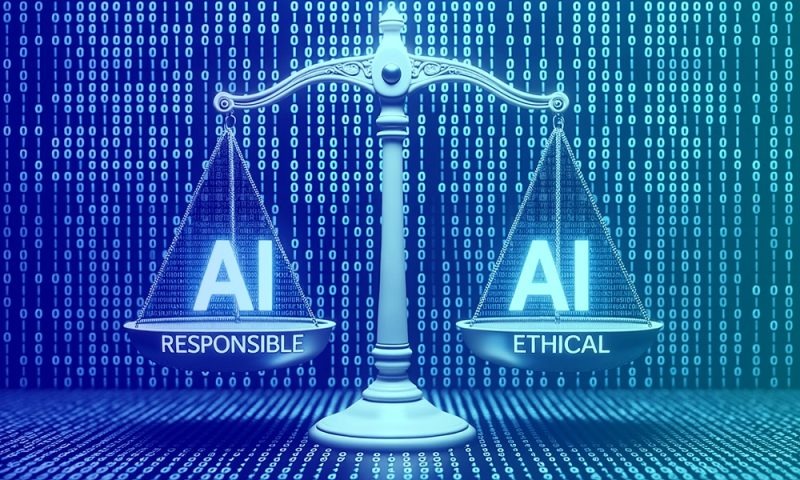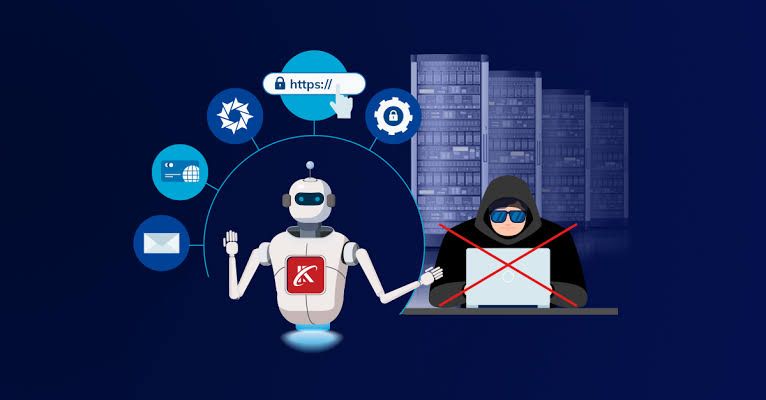
AI Alignment Forum* – Discussions on safe and ethical AI research.
The AI Alignment Forum is a specialized online research hub where experts, ethicists, and policymakers collaborate to address the safe and ethical development of artificial intelligence. It fosters rigorous debate, technical exploration, and value-driven inquiry, aiming to ensure that future AI systems remain aligned with human values, societal goals, and long-term global well-being.
✨ Raghav Jain

Introduction
Artificial Intelligence (AI) is rapidly transforming our world. From healthcare and finance to education and transportation, AI technologies are shaping nearly every aspect of modern society. Yet, with these advancements come pressing questions: How do we ensure AI remains beneficial to humanity? How can we prevent unintended harm from powerful systems? These concerns form the core of AI alignment, a field of research dedicated to aligning the goals, values, and behaviors of AI systems with human ethics and societal needs.
One of the most important online spaces where these conversations take place is the AI Alignment Forum. This forum is a collaborative hub for researchers, ethicists, and practitioners who focus on the safe and ethical development of advanced AI. It serves as a platform for in-depth discussions, knowledge sharing, and exploration of both technical and philosophical challenges in AI safety.
This article provides a detailed exploration of the AI Alignment Forum, its purpose, structure, contributions, and its role in shaping the future of ethical AI research.
The Purpose of the AI Alignment Forum
The AI Alignment Forum is not a casual discussion board. It is a highly specialized community designed to advance rigorous research on AI safety and alignment. Its primary objectives include:
- Promoting Research Collaboration
- The forum connects experts from fields such as machine learning, computer science, philosophy, cognitive science, and policy. This interdisciplinary environment fosters collaborations essential for tackling complex alignment challenges.
- Sharing and Refining Ideas
- Members post research articles, essays, critiques, and summaries. Feedback from peers helps refine arguments and generate new perspectives.
- Bridging Technical and Ethical Gaps
- The forum encourages dialogue between purely technical research (such as reinforcement learning alignment) and philosophical/ethical concerns (like value alignment and moral uncertainty).
- Supporting Long-Term AI Safety
- The discussions focus on both present-day risks (bias, fairness, robustness) and future challenges (superintelligent AI, existential risk).
History and Origins
The AI Alignment Forum grew out of earlier communities centered around rationalist and effective altruist movements, including LessWrong and the Effective Altruism Forum. These platforms often hosted deep discussions on the risks of advanced AI.
Eventually, as interest in alignment matured, researchers needed a more focused and structured platform—leading to the creation of the AI Alignment Forum. It became a place where contributors like OpenAI, DeepMind, and independent researchers could share and debate serious work in alignment research.
The forum retains some of the culture of rationalist spaces: emphasis on clarity, intellectual honesty, and long-term thinking. Yet, it also embodies a distinctly technical and research-driven tone.
Structure and Features of the Forum
- Research Posts and Papers
- Scholars often publish technical research papers, theoretical explorations, or summaries of ongoing projects. These posts are more detailed than standard blog entries and often resemble preprints.
- Commentary and Peer Feedback
- Discussions under posts are a key feature. They resemble academic peer review but in a more open, collaborative form.
- Sequences and Collections
- Longer-term research projects are organized into sequences—a structured set of posts that build on one another.
- Cross-Posting
- Many posts originate from affiliated research organizations (e.g., Alignment Research Center, Anthropic, MIRI). Cross-posting allows a wider audience to engage.
- Voting and Curation
- Posts and comments can be upvoted, highlighting high-quality contributions. Curated posts gain visibility and signal importance to the wider community.
Key Themes in Forum Discussions
The AI Alignment Forum covers a vast range of topics, but certain themes dominate:
1. Technical AI Safety
- Reward Modeling: Ensuring AI systems learn the right objectives.
- Interpretability: Understanding how models make decisions.
- Robustness: Preventing AI systems from failing in unexpected scenarios.
- Scalable Oversight: Designing mechanisms for supervising powerful systems.
2. Value Alignment and Ethics
- Human Values Encoding: How to represent human values computationally.
- Moral Uncertainty: Handling ethical ambiguity when programming AI.
- Avoiding Misuse: Preventing dual-use technologies from being exploited.
3. Long-Term and Existential Risk
- Superintelligence: Preparing for scenarios where AI surpasses human intelligence.
- Control Problem: Ensuring humans remain in control of AI systems.
- AI Governance: Policies and structures for international coordination.
4. Policy and Governance
- Regulation Frameworks: Balancing innovation with safety.
- Global Cooperation: Preventing AI arms races.
- Ethical Deployment: Ensuring responsible use across industries.
The Forum’s Impact on AI Research
The AI Alignment Forum has had significant influence in the field of AI safety:
- Shaping Research Agendas
- Many research organizations draw inspiration from forum discussions. It acts as a sounding board for new directions.
- Knowledge Dissemination
- By making research openly available, the forum democratizes access to cutting-edge AI safety knowledge.
- Talent Development
- Aspiring researchers use the forum to learn, engage with experts, and sometimes launch their careers.
- Policy Influence
- Forum discussions often inform broader debates in AI policy and governance. Policymakers occasionally consult ideas that originate in alignment circles.
Notable Contributors
Some of the most influential voices in AI safety have contributed to the AI Alignment Forum. While the community is open, many posts come from researchers at:
- Machine Intelligence Research Institute (MIRI)
- OpenAI
- DeepMind (Safety team)
- Anthropic
- Center for Human-Compatible AI (CHAI)
- Independent researchers, philosophers, and academics
These contributors often share preliminary ideas before publishing in formal venues.
Challenges Faced by the Forum
While the forum has been invaluable, it faces certain challenges:
- Accessibility
- The technical level of discussions can be intimidating for newcomers.
- Narrow Audience
- While research-focused, it struggles to engage policymakers, industry leaders, and the public at large.
- Information Overload
- The sheer volume of content makes it difficult to track all developments.
- Interdisciplinary Gaps
- Technical and philosophical discussions sometimes diverge without enough integration.
The Future of the AI Alignment Forum
Looking ahead, the forum is likely to grow in importance as AI capabilities advance. Future directions may include:
- Greater Interdisciplinary Exchange (involving law, economics, sociology).
- Bridging to Policymakers (making insights accessible to governments).
- Practical Guidance (translating theory into industry standards).
- Global Participation (expanding beyond Western-centric contributors).
The forum could evolve into a central hub not only for research but also for real-world alignment practices and global collaboration.
The AI Alignment Forum is one of the most significant online research communities dedicated to advancing safe, ethical, and beneficial artificial intelligence, serving as a specialized platform for researchers, academics, and practitioners to exchange ideas, critique ongoing work, and collaborate on solving what is often described as one of humanity’s greatest challenges—ensuring that increasingly powerful AI systems act in ways aligned with human values and societal goals; unlike casual technology forums, the AI Alignment Forum is structured more like an academic hub where posts often take the form of essays, technical research notes, or structured “sequences” that build upon one another to provide cumulative insight, and this seriousness of tone stems from its origins in earlier rationalist and effective altruist communities such as LessWrong, where discussions of AI risk, existential threats, and philosophical frameworks were common, eventually evolving into a dedicated forum for alignment when researchers realized the need for a more focused, technically rigorous environment; the forum’s purpose is multifaceted, combining the goals of promoting interdisciplinary collaboration across machine learning, computer science, philosophy, cognitive science, and policy; refining ideas through peer commentary and intellectual debate; bridging the gap between technical work on issues such as reinforcement learning robustness and philosophical problems like moral uncertainty; and preparing both for immediate concerns like algorithmic bias and long-term risks like the potential development of superintelligent systems, and within this space, participants post articles that range from cutting-edge technical research (such as interpretability studies or scalable oversight methods) to deeply philosophical essays on the nature of values, human cognition, and ethics, often attracting high-quality comments that serve as open peer review and helping refine work before it appears in formal venues; the forum’s features include voting mechanisms that highlight high-quality content, curated posts that receive greater visibility, and cross-posting from major AI safety organizations such as the Machine Intelligence Research Institute (MIRI), OpenAI, DeepMind’s safety team, Anthropic, and the Center for Human-Compatible AI (CHAI), thereby ensuring that the forum reflects the state of the art in both technical and conceptual alignment research, and key themes in discussions include technical AI safety (reward modeling, interpretability, adversarial robustness, scalable oversight), value alignment (encoding human values into computational frameworks, resolving moral uncertainty, preventing misuse of AI technologies), long-term existential risks (controlling superintelligence, designing fail-safe architectures, creating international governance frameworks), and policy/governance issues (crafting regulations that balance innovation and safety, encouraging global cooperation to prevent AI arms races, ensuring ethical deployment across industries), and through this combination of technical rigor and ethical reflection, the AI Alignment Forum has exerted an outsized influence on the trajectory of AI research: many organizations use discussions there to shape their research agendas, early-career researchers engage with experts and sometimes launch careers by contributing thoughtful posts, and policymakers occasionally draw insights from forum debates when considering frameworks for global AI governance; yet despite these strengths, the forum is not without challenges—its high technical level makes accessibility difficult for newcomers, its narrow audience limits engagement with industry leaders and policymakers who need simplified yet accurate insights, its information volume can overwhelm even seasoned participants, and gaps remain between purely technical posts and broader ethical or social analyses, but these are partly natural growing pains of a young field and partly indicators of the need to expand participation beyond Western-centric academic circles to include voices from diverse cultural, economic, and political backgrounds; looking toward the future, the AI Alignment Forum is likely to grow in importance as AI capabilities advance, with possibilities for more interdisciplinary participation involving law, economics, and sociology, more deliberate outreach to policymakers to translate theoretical research into practical governance recommendations, more global participation that reduces the current dominance of a few Western institutions, and perhaps new formats that allow practitioners in industry to adopt alignment insights in applied settings, and through these evolutions, the forum could become not only a hub for theoretical research but also a central reference point for global standards in ethical AI deployment; in essence, the AI Alignment Forum embodies a critical role in ensuring humanity takes the challenge of AI alignment seriously, providing a unique space where researchers can tackle questions ranging from the deeply technical (how to make a neural network’s reasoning transparent) to the profoundly philosophical (whose values should AI optimize?), and in doing so it fosters a culture of intellectual honesty, collaboration, and forward-thinking exploration that is vital as society navigates the transformative potential of artificial intelligence—ultimately, its work underscores a crucial truth: that ensuring AI systems remain aligned with human values is not merely a technical project but a moral imperative that may well determine the trajectory of civilization itself.
The AI Alignment Forum is an online research community dedicated to advancing discussions on the safe, ethical, and beneficial development of artificial intelligence, and it has become one of the most influential spaces for scholars, practitioners, and thinkers who recognize that as AI systems grow more powerful, ensuring they remain aligned with human values and goals is perhaps one of the most urgent challenges of our time; unlike casual blogs or technology news sites, the forum operates more like a rigorous, collaborative academic hub where participants share research posts, technical essays, and structured “sequences” of writing that gradually build detailed frameworks for understanding and solving alignment problems, and this seriousness of tone reflects its origins in earlier intellectual spaces such as LessWrong and the Effective Altruism Forum, which often hosted long-form debates about rationality, ethics, and existential risks, eventually leading to the realization that a dedicated platform was needed for AI alignment research itself, giving birth to the AI Alignment Forum as a space where technical machine learning research could meet philosophical inquiry into values, governance, and human futures; its primary purpose is fourfold: to promote collaboration among interdisciplinary experts from fields as diverse as computer science, philosophy, cognitive science, economics, and policy-making; to provide a venue where cutting-edge ideas can be shared, critiqued, and refined through high-quality peer feedback; to bridge the gap between narrow technical solutions like reinforcement learning interpretability and broader ethical issues such as moral uncertainty or value pluralism; and to focus attention not only on immediate AI risks such as bias, fairness, and adversarial vulnerability but also on long-term existential risks like the possibility of misaligned superintelligence, loss of human control, or catastrophic misuse of advanced systems; in terms of structure, the forum features research posts that often resemble preprints or long-form technical essays, commentary threads that serve as open peer review where researchers challenge, refine, or expand upon one another’s ideas, sequences that allow multi-part research projects to be organized coherently, and a voting and curation system that ensures high-quality contributions rise to prominence, while also supporting cross-posting from leading research organizations such as the Machine Intelligence Research Institute (MIRI), OpenAI, DeepMind’s AI Safety team, Anthropic, and the Center for Human-Compatible AI (CHAI), thereby making it a living archive of some of the most important contemporary work in AI safety; the themes explored are broad yet interconnected: on the technical side, researchers delve into reward modeling, scalable oversight, interpretability of neural networks, adversarial robustness, and ways to ensure machine learning systems generalize safely under distributional shifts; on the ethical side, participants debate how to encode human values into computational frameworks, whether AI should respect pluralistic moral theories in cases of uncertainty, and how to guard against misuse of dual-use technologies; long-term risks also dominate many threads, including discussions of the control problem (how to ensure humans remain in charge of more intelligent systems), strategies for safe deployment of superintelligent AI, and international governance mechanisms that could prevent an arms race in advanced AI capabilities; policy and governance topics appear as well, ranging from regulation frameworks that balance safety and innovation, to global cooperation treaties that might resemble nuclear arms control agreements but applied to AI, to sector-specific guidelines ensuring ethical deployment of AI in industries like healthcare, defense, and education; the impact of the forum has been substantial: many research organizations draw upon debates there to shape their agendas, knowledge is widely disseminated and made accessible to aspiring researchers who can study past sequences and comments like a textbook, early-career scholars often make their mark and sometimes find collaborators or mentors through the platform, and even policymakers occasionally consult the distilled insights of alignment researchers when crafting governance frameworks, meaning the forum functions not only as a research hub but also as a talent pipeline and an informal bridge to public policy; among its notable contributors are leading organizations like MIRI, OpenAI, Anthropic, CHAI, and DeepMind Safety, as well as influential independent researchers and philosophers who often publish preliminary insights before submitting to journals or conferences, making the forum a place where important ideas appear early; yet the community faces challenges: the technical level can intimidate newcomers, limiting accessibility; the audience remains narrow, with limited engagement from industry practitioners or policymakers who need more digestible summaries; the sheer volume of content can overwhelm participants, making it difficult to track every relevant development; and sometimes disciplinary silos appear, with highly technical machine learning posts failing to integrate with philosophical or sociological perspectives, highlighting the need for stronger interdisciplinary synthesis; still, these challenges are being recognized, and many in the community believe the forum’s future evolution will involve expanding interdisciplinary exchanges to include voices from law, economics, sociology, and even cultural studies; developing stronger outreach to governments and industry leaders so theoretical insights can influence practical policy and safety standards; increasing global participation to reduce the current Western-centric bias; and translating theoretical breakthroughs into applied frameworks that engineers and regulators can actually implement; in conclusion, the AI Alignment Forum has established itself as an indispensable part of the AI safety ecosystem, a place where rigorous technical research coexists with philosophical debate, where intellectual honesty and curiosity drive exploration of humanity’s biggest questions, and where the collaborative spirit of an online forum has produced tangible influence on both academic research and policy debates; as AI technologies advance toward unprecedented capabilities, the importance of alignment research will only grow, and with it the role of the AI Alignment Forum in helping humanity steer this powerful technology toward outcomes that are safe, ethical, and aligned with human flourishing—reminding us that alignment is not merely a technical puzzle but a moral responsibility that could shape the trajectory of civilization itself.
Conclusion
The AI Alignment Forum stands as one of the most influential online communities dedicated to the safe and ethical development of artificial intelligence. It connects researchers, ethicists, and policymakers in their shared mission to ensure AI benefits humanity.
Through structured discussions, rigorous peer review, and cross-disciplinary exploration, the forum advances both the technical and ethical dimensions of AI alignment. While it faces challenges of accessibility and scope, its role in shaping the future of AI safety is undeniable.
As AI systems grow more powerful, the work of communities like the AI Alignment Forum becomes increasingly critical. Ensuring that AI systems are aligned with human values is not just a technical challenge—it is a moral imperative that may define the future of civilization.
Q&A Section
Q1 :- What is the AI Alignment Forum?
Ans:- The AI Alignment Forum is an online research community dedicated to discussions on the safe, ethical, and beneficial development of artificial intelligence, particularly focusing on alignment problems.
Q2 :- Who participates in the AI Alignment Forum?
Ans:- Researchers, ethicists, academics, and practitioners from organizations like OpenAI, DeepMind, Anthropic, MIRI, and CHAI, as well as independent contributors, actively participate in the forum.
Q3 :- What are the main themes discussed on the forum?
Ans:- Key themes include technical AI safety (robustness, interpretability, reward modeling), value alignment, long-term existential risks, and AI governance.
Q4 :- How does the AI Alignment Forum impact AI research?
Ans:- It shapes research agendas, spreads knowledge, supports new talent, and informs global AI safety and policy debates.
Q5 :- What challenges does the forum face?
Ans:- Challenges include accessibility for newcomers, limited engagement with policymakers, overwhelming content volume, and bridging interdisciplinary gaps.
Similar Articles
Find more relatable content in similar Articles

Solar-Powered Wearables: Can T..
Solar-powered wearables are re.. Read More

AI-Powered Hackers: The New Cy..
In 2025, cyber threats have en.. Read More

Smart Cities: How Technology I..
Smart cities are transforming .. Read More

AI in Drug Discovery: Faster C..
Artificial Intelligence is rev.. Read More
Explore Other Categories
Explore many different categories of articles ranging from Gadgets to Security
Smart Devices, Gear & Innovations
Discover in-depth reviews, hands-on experiences, and expert insights on the newest gadgets—from smartphones to smartwatches, headphones, wearables, and everything in between. Stay ahead with the latest in tech gear
Apps That Power Your World
Explore essential mobile and desktop applications across all platforms. From productivity boosters to creative tools, we cover updates, recommendations, and how-tos to make your digital life easier and more efficient.
Tomorrow's Technology, Today's Insights
Dive into the world of emerging technologies, AI breakthroughs, space tech, robotics, and innovations shaping the future. Stay informed on what's next in the evolution of science and technology.
Protecting You in a Digital Age
Learn how to secure your data, protect your privacy, and understand the latest in online threats. We break down complex cybersecurity topics into practical advice for everyday users and professionals alike.
© 2025 Copyrights by rTechnology. All Rights Reserved.